
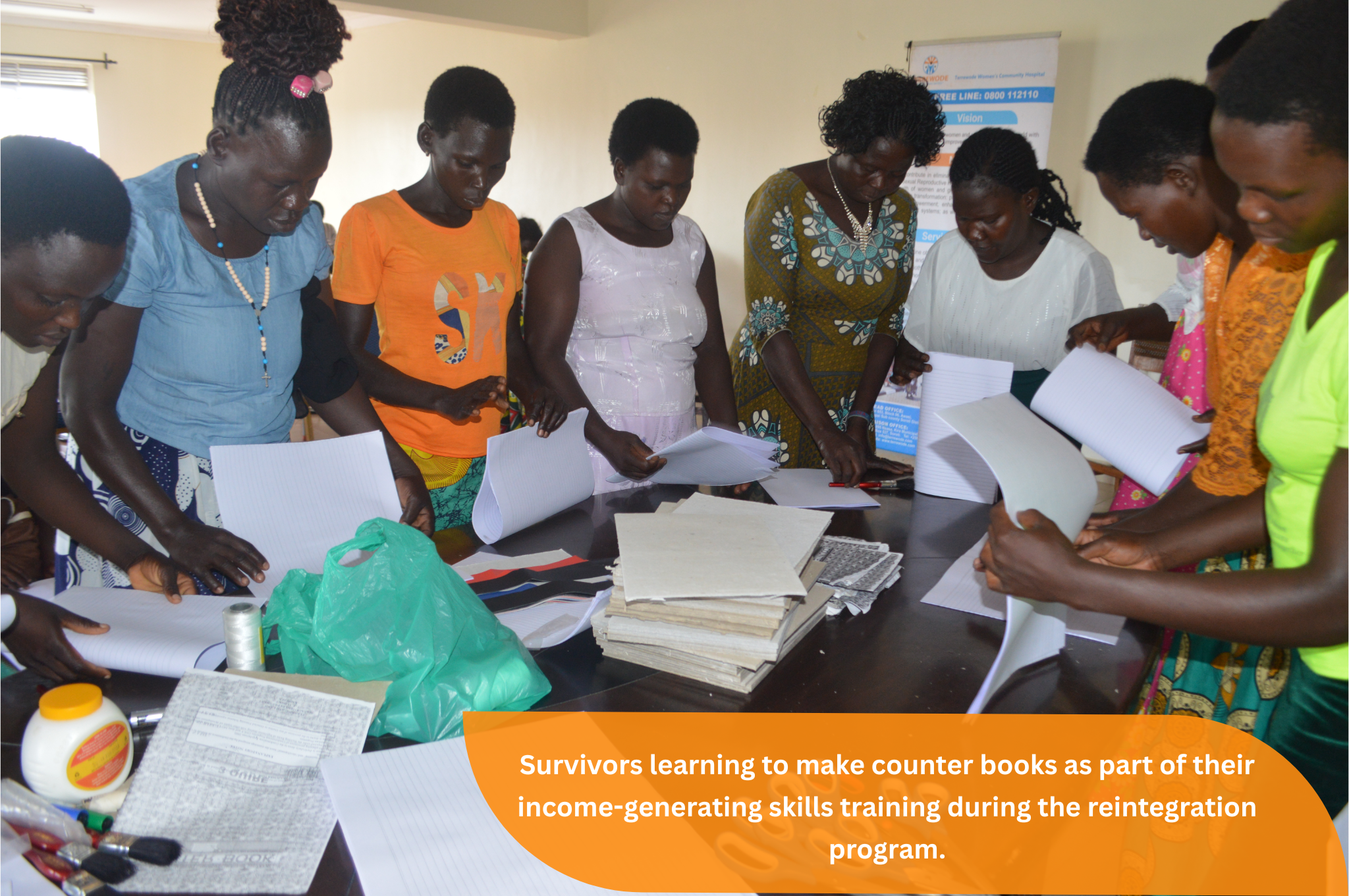
Opening Note from the Executive Director
Welcome to our 2024-2025 Annual Report. It only feels natural to open the report by defining the kind of year we’ve had, and the best description

I can think of is bold. The impact of The Association for Rehabilitation and Reorientation of Women for Development (TERREWODE) and Terrewode Women’s Community Hospital (TWCH) is quite vivid throughout this report. We continued to empower vulnerable women and girls affected by obstetric fistula and other childbirth injuries through our core programmatic areas: treatment, reintegration, community awareness and advocacy, training, and research.
Within this summary of our annual achievements, you will read about the holistic and patient-centered treatment we provided to 526 women and girls at TWCH. You will also learn about our individualized reintegration program that supported the social, psychological, economic, and physical well-being of 557 survivors (former fistula patients).
To increase accessibility of holistic care, we continued to undertake initiatives that strengthened our partnerships with health facilities. As a result, we supported the treatment of 80 patients through treatment camps. Our collaborations also included supporting 11 health facilities in different communities to screen for obstetric fistula and make appropriate referrals, leading to 93 patients receiving treatment at TWCH. During these screenings, we enhanced the skills and knowledge of 114 health workers, as detailed in this report.
Our commitment to outstanding service quality and delivery was upheld through routine quality assurance inspections and ongoing staff-capacity building programs. You’ll learn more about these efforts, as well as updates on our research progress this year.
Our project beneficiaries, much like the organization, are determined to eliminate obstetric fistula. Their dedication was especially evident during sub-regional stakeholder dialogues and the national commemoration of the International Day to End Obstetric Fistula, during which they advocated, through sharing personal experiences, music, dance and drama
You’ll discover the impact of our interventions through the stories of Winnie Akumu and Maureen Kansiime, survivors who received multiple dimensions of our care. We asked staff to share highlights from the financial year and received interesting reflections from departments.
These achievements would not have been possible without our dedicated Board of Directors and Board of Governors, our committed partners, dedicated staff and volunteers, the resilient women and girls we serve, and all the other stakeholders. I remain grateful to each of you.
This annual report presents only a fraction of what we hope to accomplish, and we are confident that this impact will continue to grow in the upcoming financial year.
Alice Emasu Seruyange
Founder and Executive Director
Management 2024-2025
Alice Emasu Seruyange- Executive Director
Dr. Mary Aono -Medical Director
Martha Ibeno -Program Manager
Lutie Kobusinge -Finance Manager
Monica Opus-Administration and Human Resource Manager
Remarks from the Board of Directors Chairperson
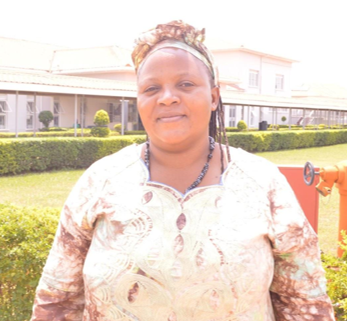
The end of this financial year marks the completion of the first year of the newly appointed Board of Directors. Throughout the first year, the directors have worked tirelessly and remained committed to strategically guiding the organization and developing Terrewode Women’s Community Hospital as a center of excellence in the management of obstetric fistula.
We held full board sittings and each of the committees met to further the agenda.
What stood out from these meetings was the attention to the communities that we serve. The women in need of care and survivors were at the center of every effort, and I’m sure you will pick up on that as you read through our annual report.
As I look back at the year, my heart is filled with gratitude. It’s a powerful thing to witness people coming together with different talents, different skills, different expertise and stand around a mission they believe in. The Board of Directors, Board of Governors, management, staff, donors, development partners, community leaders, survivors turned advocates, and other stakeholders, all contributed to the impact in this report. This list is long, and I hope it continues to extend this financial year until we have eliminated fistula in Uganda. In the many ways that you have contributed, thank you.
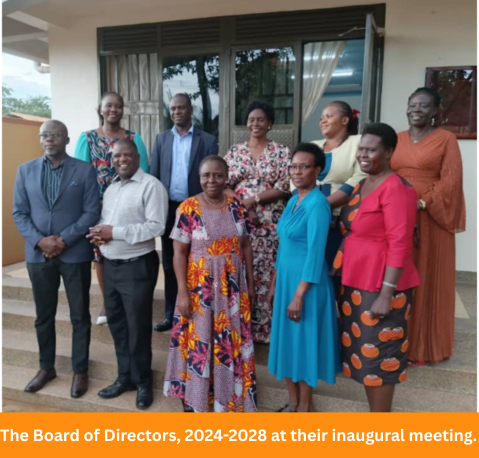
Board of Directors 2024-2025
Grace Lwanga Nakirijja – Chair
Ocanya Samuel–Vice Chair
Agnes Zitta
Betty Akullo
Emoit George Stephen
Sarah Ajalo Okodu
Kyayonka Christine Obonyo
Maxwell Ngobi
Christine Akumu Sifuna
Remarks from the Board of Governors Chairperson
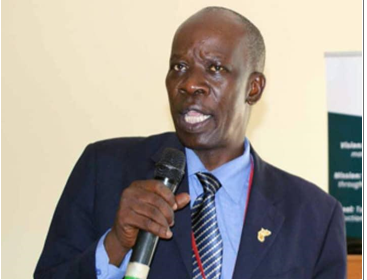
I began this year by offering staff a challenge: be simple. Without much explanation or definition of the challenge , I set them with it. This was during the first quarterly quality assurance visit at Terrewode Women’s Community Hospital. As the year progressed, through the subsequent quality visits and performance reports, I saw the different ways this message was interpreted.
For some of the staff, it was a reminder of a philosophy they were aware of while for others it prompted them to look around themselves, both in and outside of the workplace, for opportunities to extend beyond the norm.
For me, the opportunity came when I was elected to chair this board. When I look back at this year, it is evident that my fellow board members challenge themselves in different ways to position the hospital as a center of excellence and tighten any loose threads blocking the attainment of our vision. We have met twice as a full board and five times in smaller committees. I’m happy that on top of that, some board members have individually mentored staff, management, and interacted with project beneficiaries. All to ensure we are caring for the women and girls we built our mission around.
The most rewarding process for me during this financial year has been comprehensively reviewing the hospital’s care systems such as the patient care algorithm, staff capacity-building programs, and our hospital center of excellence standard.
I invite you to challenge yourself to be special too. To look around yourself and identify the opportunities for you to extend beyond the norm. And if you already do, then let this be encouragement for you to keep going with what you are passionate about. If this mission is one that presents an opportunity for you to be special, then let’s work together in the new financial year to advance the hospital impact.
Dr. Amandua Igbea Jacinto
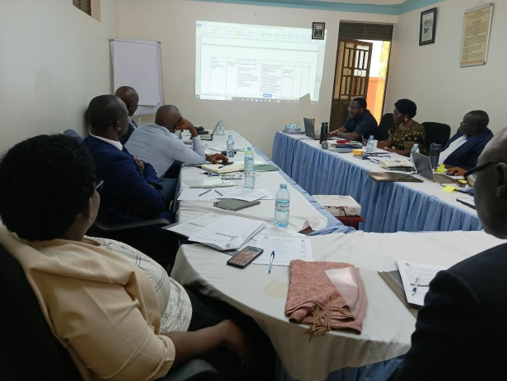
Board of Directors 2024-2025
Dr. Amandua Igbea Jacinto – Chair
Dr. Zaam Nalule – Vice Chair
Dr. Jacinta Kobusingye Bwegyeme
Dr. Robert Kasigazi
Dr. Robert Olupot
Catherine Mwesigwa Kizza
Dr. Otim Charles Tom
Holistic, Patient-Centered Treatment at Terrewode Women’s Community Hospital
Women’s Community Hospital (TWCH) provided holistic, patient-centered treatment to 526 women and girls suffering from obstetric fistula and other childbirth injuries this financial year. This achievement comes after deliberately increasing our treatment target from 400 to 500 at the start of the year. Of the total patients admitted, 85% received surgical intervention, while the rest received conservative treatment, including physiotherapy. The majority of the patients were between 25 and 45 years old, and 7% were under 18, as illustrated in the chart.
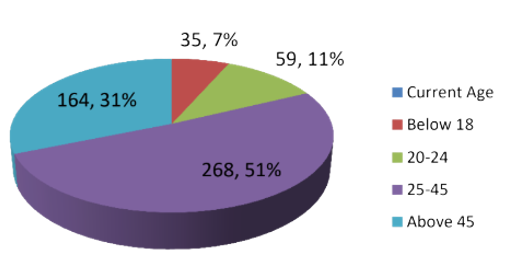
All patients received our holistic care package which includes individual and group counseling, screening including for cervical cancer and gender-based violence, health education on obstetric fistula, family planning, hygiene, among other services.
Reflecting on a key insight this year, Dr. Mary Aono, the Medical Director, shared a realization she had while providing care to two minors at TWCH.

The facility received two patients who had suffered severe fourth-degree perineal tears, a two-year-old and a 15-year-old, due to aggravated defilement and gang sexual assault, respectively.
These cases break my heart. I feel grateful for the fact that I was able to treat the physical injuries of these children, but it is important to prevent such from happening in the first place–to any woman. My experience managing these cases has made me realize the need for vigilance, awareness and advocacy, especially as we work to eliminate fistula in Uganda and all over the world. This also made me appreciate the holistic approach TERREWODE brings to the campaign even more.”
Dr. Aono Mary
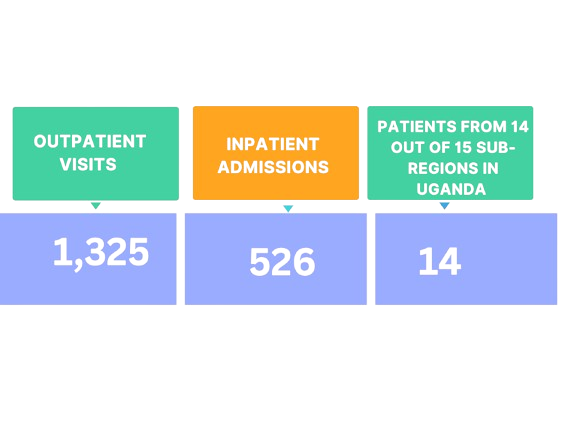
Individualized Approach to Reintegration
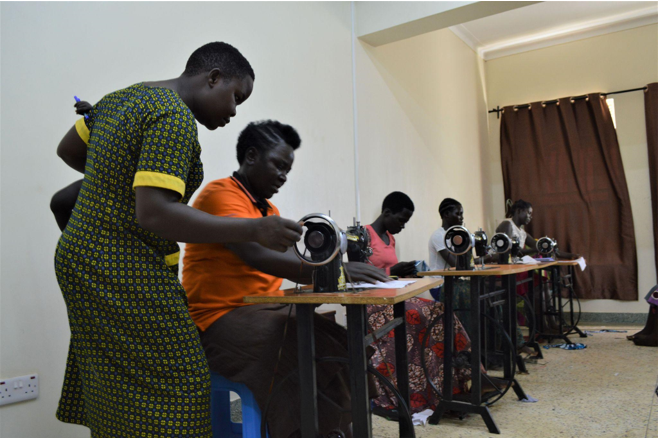
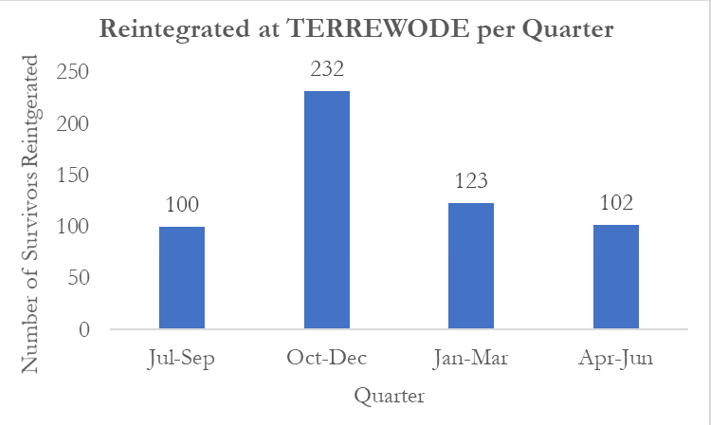

Increasing Access to Holistic Care through Collaboration
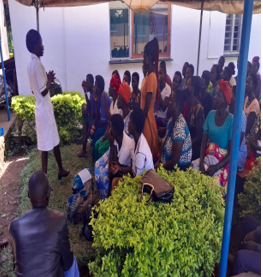
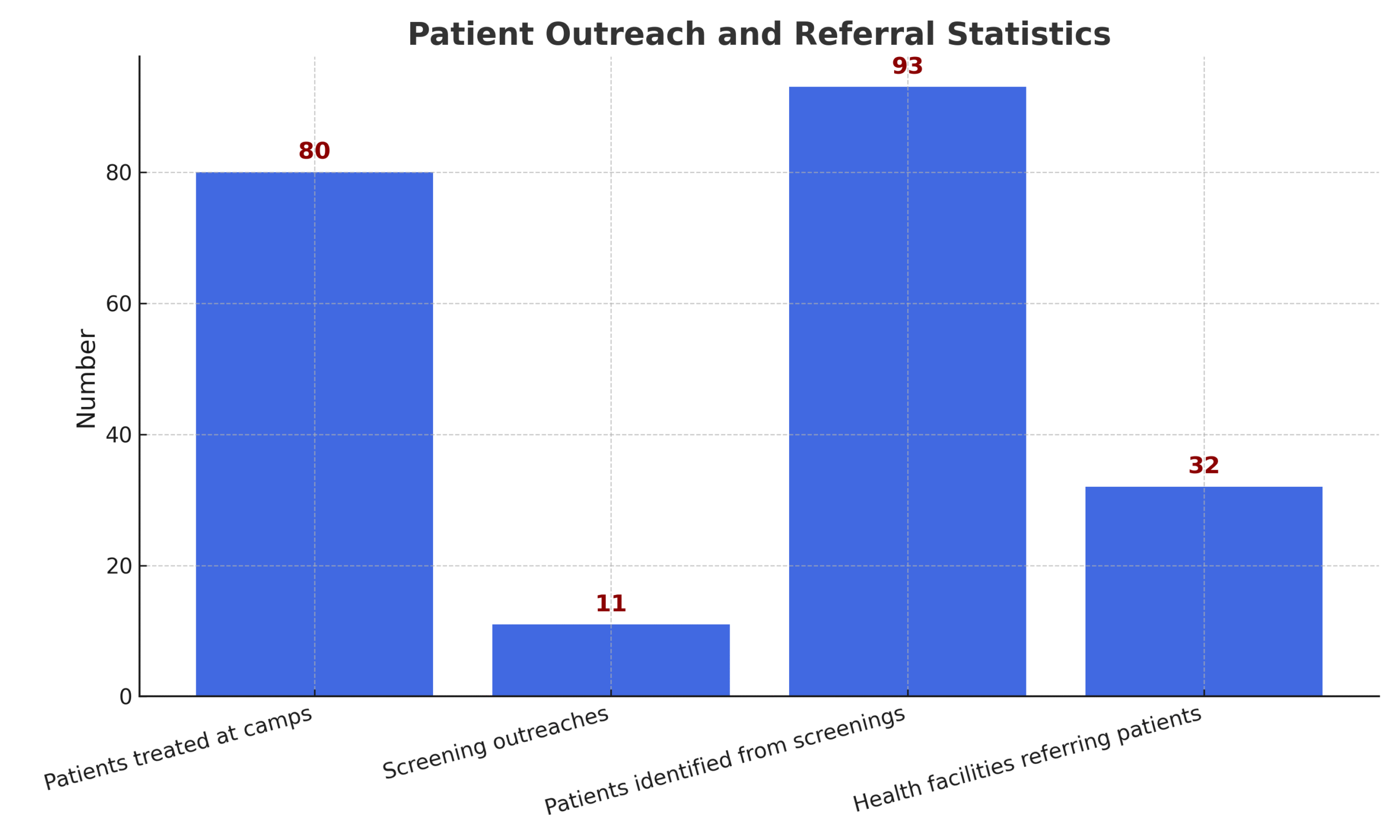
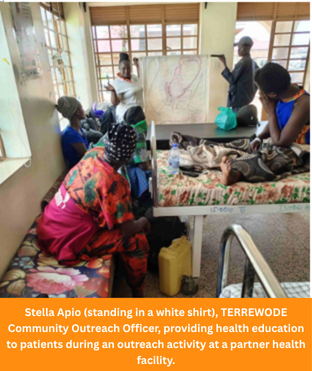
Community Awareness and Advocacy
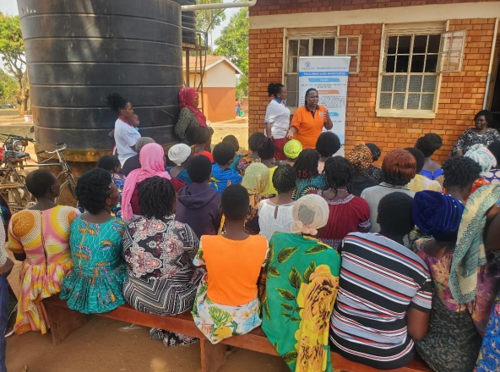
This year, we employed diverse strategies to raise community awareness about the causes, effects, treatment, and prevention of obstetric fistula and other childbirth injuries. We also continued our advocacy efforts to address the delays resulting in obstetric fistula, improve health outcomes for patients, and support the reintegration of women and girls into their communities.
A core stakeholder in these efforts was our vibrant Obstetric Fistula Awareness and Advocacy Network (OFAAN), composed mainly of survivors (former fistula patients) turned advocates, community health workers, and other community members. During the year, we mentored 77 OFAAN members to enrich their capacity and refresh their health education and patient referral knowledge. Among them was Sr. Irene Cherotic, the Assistant District Health Officer for Maternal and Child Health and Nursing at Bukwo Health Center IV. Sr. Irene used creative strategies to reach her community including creating awareness at church and using WhatsApp to spread awareness. Her efforts led to the referral of 20 patients.
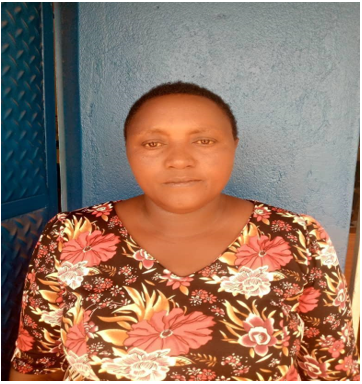
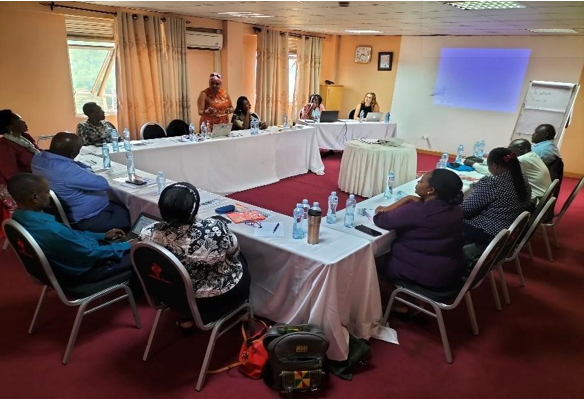
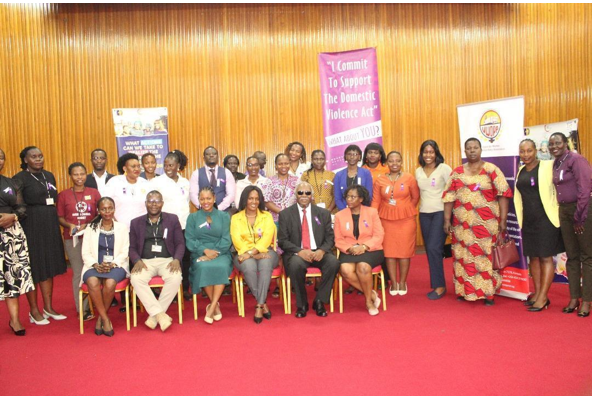
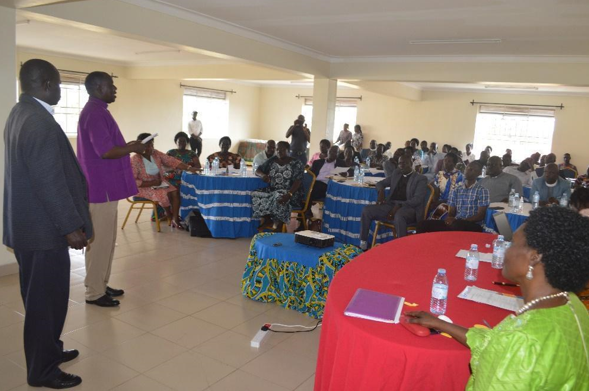
Research Highlights
Another project advanced to the data analysis and report writing stage this year, while proposals were developed for two other studies awaiting submission to the Research Ethics Committee (REC) to begin in the upcoming year.
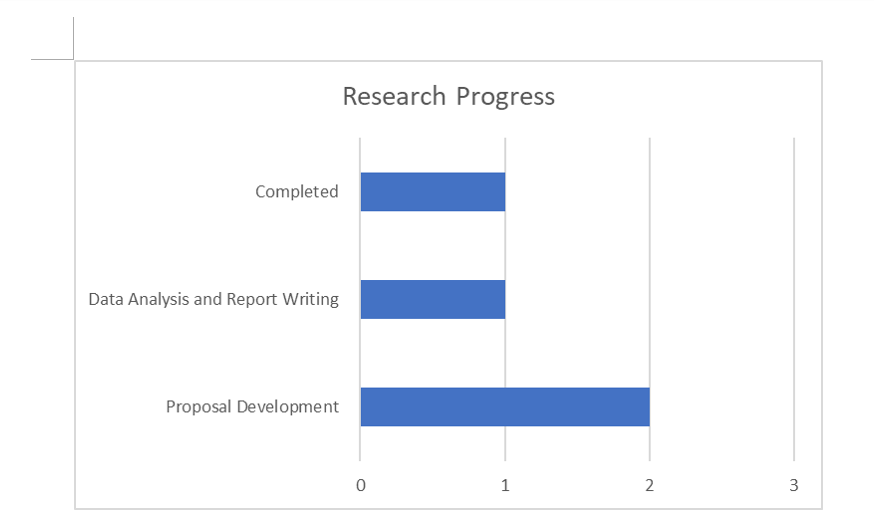
Reflecting on this progress, the Research Officer, Wilson Tusiime, said, “We have used research to identify the gaps we have in service delivery, therefore contributing to improvement in the management of patients. Also, to provide evidence of the work we do, such is the case with the data we collect from reintegration and community engagements. In the next year, we have opportunities to use research to assess innovative approaches in the treatment and management of complex cases, and ultimately to influence policy nationally.”
Winnie’s Story of Overcoming Fistula Twice
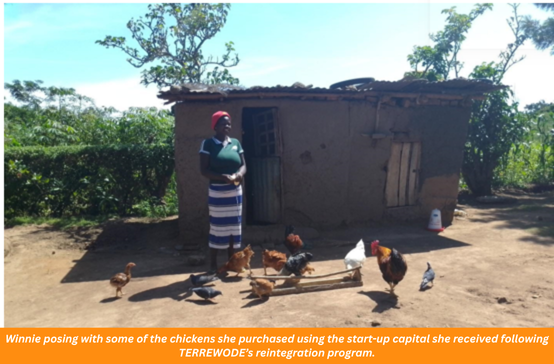
In 2025, Winnie faced a delay to reaching an appropriate health facility for obstetric fistula leading to a childbirth injury.
A few days to her due date, Winnie first discussed the need for an elective caesarian section with her husband. He dismissed the idea and complained that the cost for the procedure would be expensive. Later that day, he forced her out of the home, saying he did not want to deal with losing another child.
Winnie, who was orphaned at a young age, returned to live with her grandmother. Her grandmother was unable to afford the surgery but had savings that she offered to spend on Winnie’s due date. Two weeks later, at 11:00pm, Winnie felt sharp contractions which she endured until sunrise for fear of traveling in the night. The pain became unbearable, and she started screaming. Her neighbor learned that she was labor and transported her on his motorcycle to the nearest Health Centre III. Upon arrival, and learning about her past fistula, the doctors referred her to the nearest Health Centre IV. The journey to Buyinja Health Center IV, 10km away, took 30 minutes.
“It was on a Sunday. When I reached the hospital, the nurse told me that the doctor was not there and the anesthetist was in Jinja,” Winnie recalls. She was then referred to Masufu General Hospital in Busia District, an hour and a half ride away.
“When I reached Masafu, the doctor told me my baby had passed. I cried. Then things got worse. They told me I had a fistula. Getting the same condition twice made me think that I was cursed, like, maybe when my mother died while giving birth to me. I hated my life. I was scared of being mistreated again,” Winnie remarks.
As soon as Winnie’s neighbors learned of the recurrence of her condition, they began to avoid her. Her husband’s clan banned her from returning to her marital home and meeting her child, out of fear that her misfortune would “spread”. They burned all the clothes and bedding she had at her marital home.
“I lost everything I ever had. I became useless, again,” says Winnie.
Despite TWCH calling Winnie to follow-up on her delivery, she couldn't bring herself to answer. She feared being perceived as “reckless” for getting a fistula again. Her last contact with TWCH was two weeks before her delivery, when she was connected with doctors at Namayingo Health Centre IV.
Eight months later, a member of the TERREWODE Obstetric Fistula Awareness and Advocacy Network (OFAAN) was raising awareness about fistula treatment on a ferry headed to Kenya from Namayingo when someone brought up Winnie. She visited Winnie a few days later and encouraged her to seek care. They travelled together to TWCH where Winnie’s fistula was successfully closed, and her continence restored in June 2024.
Five months later, Winnie was enrolled in TERREWODE’s individualized reintegration training program. She had a strong desire to reunite with her husband and son. She received several individual counseling sessions before a couple counseling session with her husband. Her husband received health education on fistula and with time, his views shifted, and he became open to reconciliation. These sessions were in addition to training in income generating activities, and awareness and advocacy.
By the time of a follow-up home visit in May 2025, Winnie had reunited with her husband and son. She had also started a poultry farm with 20 hens as well as a piggery with the start-up capital from TERREWODE.
Winnie’s husband remarked during the follow up visit, “I wish I had listened to my wife instead of the myths. Maybe we would be happy with two children now. I have learnt my lesson, and I go with her when she is talking to other people in this village about fistula.”
“TERREWODE treated me and gave me a bigger gift of living with my husband and son again,” Winnie expressed.
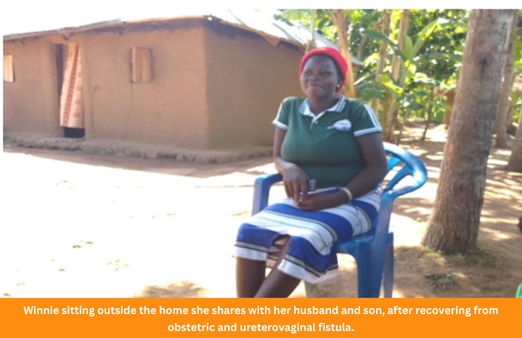
Commitment to Outstanding Service Quality and Delivery
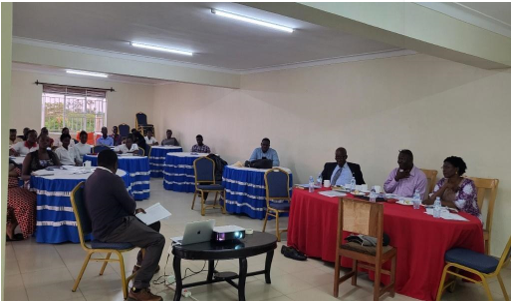
This year, the board committee conducted four quarterly visits assessing the clinical performance across various departments, including the laboratory, pharmacy, outpatient and inpatient units, and the specialized clinics. The inspections, guided by the customized TWCH Quality Assurance Assessment Tool, were followed by a meeting with management and staff to share practical recommendations for enriching systems, standards, and procedures.
We began the year with a comprehensive three-day Human Resource (HR) training, engaging 98% of staff, including volunteers. The training revisited core HR policies and organization values, while equipping staff with practical tools for effective communication, conflict resolution, stress management, and teamwork. The training was facilitated by consultant HR specialist, Olivia Kiwummulo, with support from TERREWODE’s HR Officer Diana Kyesitalo.
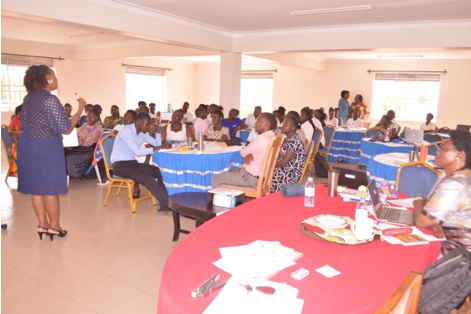
Through our partnership with the International Federation of Gynecology and Obstetrics (FIGO), we continued to provide training in the provision of specialized obstetric care. This year, two doctors, Marvin Mwesigwa from Mbarara University of Science and Technology, and Lt.Col Richard Katungye, the Director of Services for the Uganda People’s Defense Forces, received this training under the instruction of FIGO accredited trainer, Dr.Fekade Ayenachew. Dr.Mwesigwa returned for his second mentorship, having completed the first in 2023.
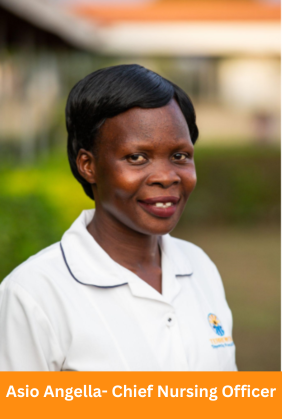
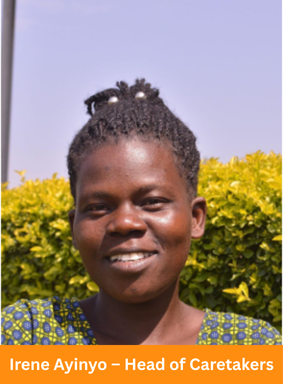
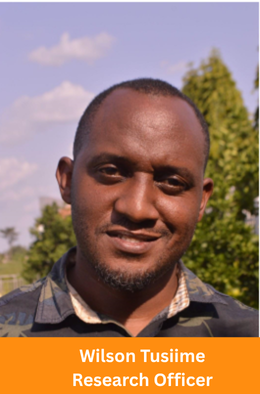
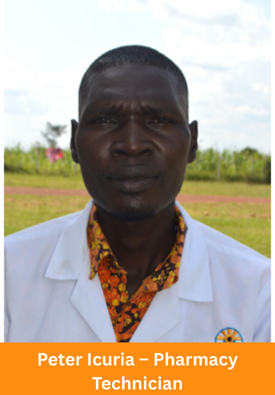
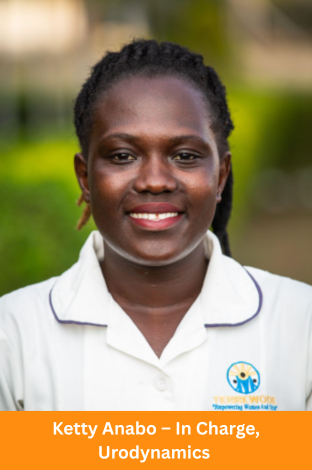
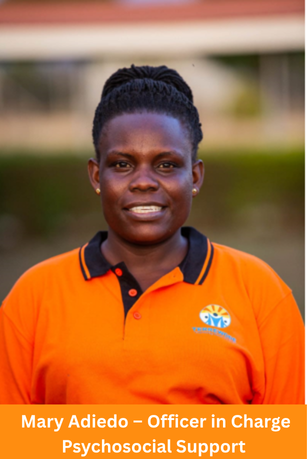
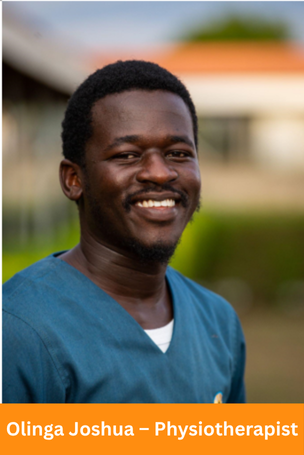
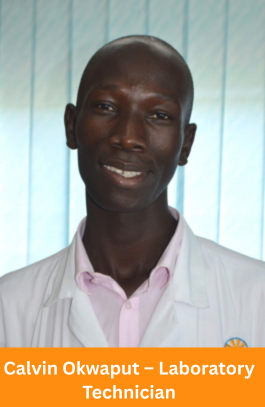
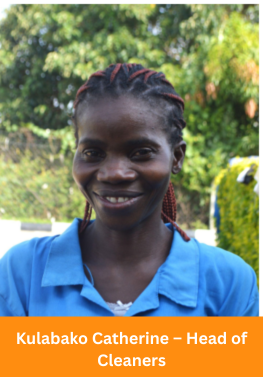
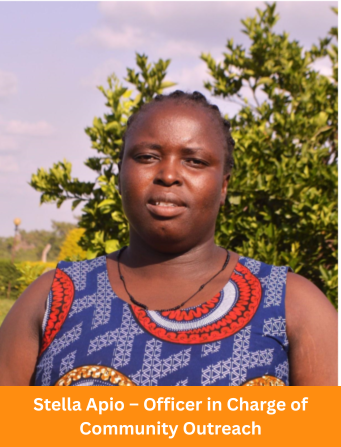
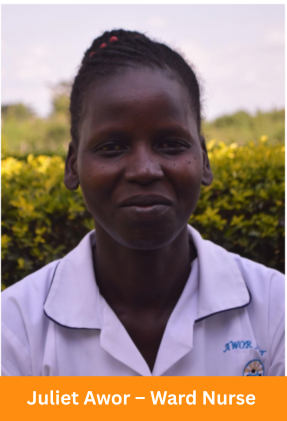
Story of Impact: Maureen Kansiime
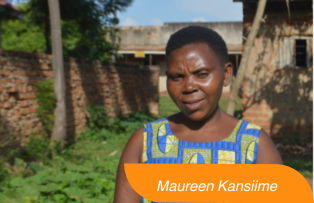
In early 2023, Maureen met a man who expressed interest in marrying her later that year. She conceived shortly after meeting him. Maureen valued antenatal care and attended all the required visits. As soon as she realized she was in labor, she travelled to the nearest health facility, Ongino Health Center III, with her husband.
“The nurses told me that my baby was not in the correct position and instead he was lying across my womb. They tried to reposition the baby, but failed,” Maureen recalls. She was referred to Kumi Hospital, where she underwent a cesarean section. Her baby was in a critical condition and passed away shortly after birth.
“I was still recovering from the operation when the doctor came to me and told me that my baby had died. I can’t remember what I said or if I even said anything. The dad of the baby was there when they told me. After the doctor left, he took our baby and told me he was going to bury him. That was the last time I saw or heard from him. I didn’t even get to bury my baby,” Maureen shares.
Two weeks later, Maureen was diagnosed with obstetric fistula during a follow-up visit at Kumi Hospital. She was referred to Terrewode Women’s Community Hospital, where her fistula was successfully closed, and her continence fully restored.
In February 2025, Maureen was enrolled in TERREWODE’s individualized reintegration program during which she received health education, counseling, financial literacy, training in awareness and advocacy, as well as in income-generating activities. As part of the program, she developed a business plan and received start-up capital of UGX 50,000 (approximately USD 14) from TERREWODE. She used this money to establish a stall in Ongino Trading Center in Kumi District.
"I used the capital to buy two packs of wheat flour, one and a half liters of cooking oil, two packs of baking powder, and half a kilogram of sugar. I used that to make mandazi [fried bread]. Buying everything costs less than UGX 30,000. I make a profit of UGX 5000 of profit every day,” Maureen shares. Eventually, Maureen was able to save enough money to start a garden in her compound.
"Rather than buying everything, we pick part of our food from here. I grow tomatoes, eggplants, and spinach. When there are many tomatoes, we sell some to make extra money,” says Maureen. She continued to invest in her business, diversifying the items sold from her stall to include groundnut paste, cooking oil, and silverfish.
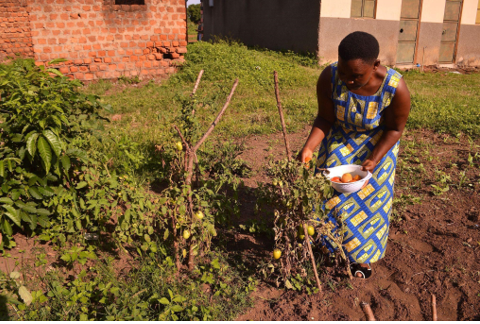
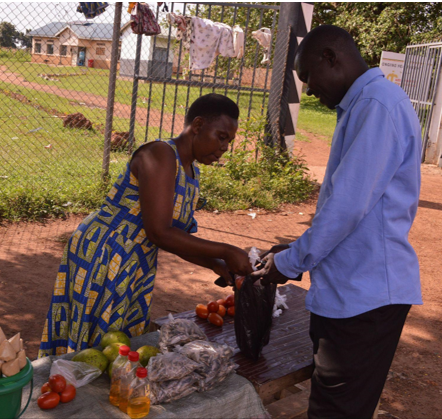
Maureen selling items from her stall.
Acknowledgement
The impact to the lives of vulnerable women and girls in Uganda, this year, would not have been possible without your support. We look forward to making even more progress in the upcoming financial year.
